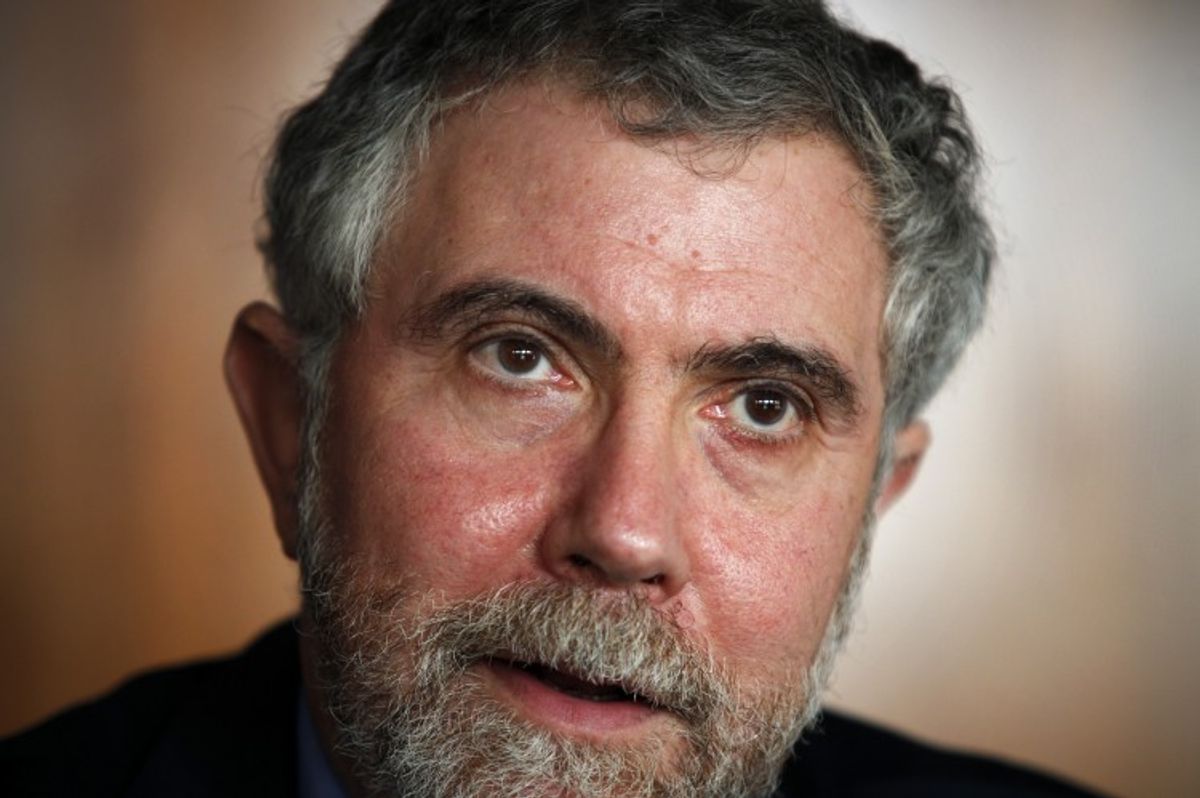In his latest column for the New York Times, celebrated liberal pundit and economist Paul Krugman argues that if pro-environment Republicans (a relative term) want their rhetoric about the need for climate action to be taken seriously, they'll have to do a whole lot more than just support the types of reforms that adhere to conservative orthodoxy while standing no chance of passing Congress.
Using former Treasury Secretary Hank Paulson's recent Times Op-Ed in support of a carbon tax as a jump-off, Krugman writes that conservatives like Paulson who believe climate change is real, seriously threatening and largely the result of human activity are "brave" when they come out for a carbon tax, "[b]ut not nearly brave enough."
"Emissions taxes are the Economics 101 solution to pollution problems; every economist I know would start cheering wildly if Congress voted in a clean, across-the-board carbon tax," Krugman writes. "But that isn’t going to happen in the foreseeable future. A carbon tax may be the best thing we could do, but we won’t actually do it."
According to Krugman, what conservatives like Paulson must do — at least if they want to earn the right to call themselves serious about climate change — is back the many "second-best answers" to the problem that climate wonks and many Democratic politicians have already been supporting for years. Unless right-wingers are willing to accept the solutions produced by our far-from-ideal reality, Krugman states, "their supposed environmentalism is an empty gesture."
What are some of the second-best solutions Krugman's talking about? Things like fuel-efficiency standards, targeted investments in sustainable energy, Environmental Protection Agency regulations, and all manner of hybrid policies that try to use market mechanisms to force pro-sustainability changes to business and consumer practices. The climate policy smorgasbord currently embraced by most Democrats, in other words.
Unsurprisingly, Krugman is skeptical that other conservatives — especially ones with more credibility within the GOP than the bailout-backing Paulson currently holds — will join the former George W. Bush appointee's call for climate action; or surpass him by pushing second-best solutions. More likely, Krugman writes, is that the story of climate action in American politics will unfold much like that of healthcare reform: messily, with great partisan vitriol and, in the end, with relative success.
In policy terms, climate action — if it happens at all — will probably look like health reform. That is, it will be an awkward compromise dictated in part by the need to appease special interests, not the clean, simple solution you would have implemented if you could have started from scratch. It will be the subject of intense partisanship, relying overwhelmingly on support from just one party, and will be the subject of constant, hysterical attacks. And it will, if we’re lucky, nonetheless do the job.
Did I mention that health reform is clearly working, despite its flaws?
The question for Mr. Paulson and those of similar views is whether they’re willing to go along with that kind of imperfection. If they are, welcome aboard.



Shares